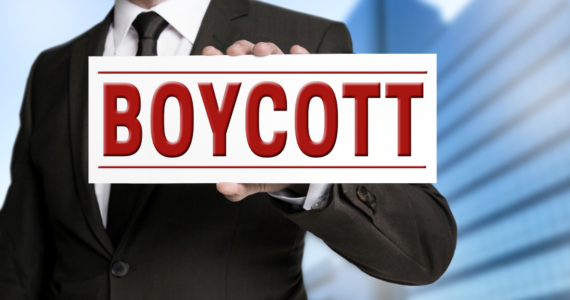The Black middle class has historically been a symbol of economic progress, largely built through higher education, government and corporate jobs, entrepreneurship, and homeownership. However, with Trump’s policies targeting federal job cuts, the rollback of DEI (Diversity, Equity, and Inclusion) initiatives, and changes in economic policy, many are wondering whether these shifts will undermine or reshape Black middle-class stability.
Federal Job Cuts Could Hit Black Workers the Hardest
The federal government is the largest employer of Black professionals, providing stable wages, benefits, and career growth. Trump’s proposed layoffs in federal agencies could disproportionately impact Black employees, leading to:
- Mass layoffs in key sectors where Black professionals hold roles in administration, social services, education, and law enforcement.
- Loss of wages and retirement security, increasing financial vulnerability for Black middle-class families.
- A rise in unemployment and underemployment, making it harder to maintain homeownership, savings, and generational wealth.
Since many Black families have relied on public-sector jobs for economic mobility, large-scale job losses could push them toward financial instability.
The Rollback of DEI Policies Could Limit Career Growth
Trump has vowed to eliminate DEI programs in government, corporations, and universities, arguing that they promote racial bias. However, DEI programs have played a critical role in:
- Expanding career opportunities for Black professionals in STEM, finance, healthcare, and executive leadership.
- Providing scholarships, mentorships, and networking opportunities for Black students and workers.
- Ensuring diverse hiring practices in public and private sectors.
Without these programs, career mobility could stagnate, making it more difficult for Black professionals to secure high-paying leadership positions.
Black-Owned Businesses Could Struggle Without Government Support
Black entrepreneurship has been a major driver of middle-class growth, but many Black businesses rely on federal contracts, grants, and loan programs—areas that may face cuts under Trump’s administration.
- Reduced access to federal contracts could limit business growth and sustainability.
- Funding restrictions on small business programs could make it harder for Black entrepreneurs to secure loans and investment capital.
- Declining consumer spending from federal job losses could hurt Black-owned retail, service, and professional businesses.
Without government-backed resources, many small Black businesses may struggle to survive or expand.
Housing and Lending Policies Could Affect Black Homeownership
For many Black middle-class families, homeownership is the primary source of generational wealth. However, Trump’s policies may:
- Raise interest rates, making buying or refinancing a home more expensive.
- Reduce federal support for first-time homebuyers, disproportionately affecting Black families working toward homeownership.
- Accelerate gentrification, leading to higher property taxes and displacement in historically Black neighborhoods.
If homeownership declines, Black wealth gaps could widen further.
Education and Student Loan Policy Changes Could Limit Economic Mobility
Higher education has been a gateway to the middle class, but Trump’s past policies have cut education funding, reduced Pell Grants, and weakened student loan protections.
- Potential cuts to student loan forgiveness programs could disproportionately impact Black graduates, who already carry higher student debt than other racial groups.
- Fewer resources for Black-serving institutions like HBCUs (Historically Black Colleges and Universities) could limit access to higher education.
Higher student debt burdens could delay wealth-building milestones like buying a home, starting a business, or investing in retirement.
Can the Black Middle Class Survive These Challenges?
Despite these looming threats, the Black middle class has historically adapted and fought for economic stability. Ways to navigate these changes include:
- ✔️ Strengthening Black-Owned Businesses – Prioritizing community spending and investment.
- ✔️ Financial Literacy & Wealth-Building – Encouraging investing, saving, and homeownership strategies.
- ✔️ Policy Advocacy & Voting Power – Ensuring Black voices shape economic policies at local and national levels.
- ✔️ Networking & Career Development – Expanding support systems beyond DEI initiatives.
Trump’s policies may reshape the Black middle class, but they won’t erase its progress. The key question remains: Will Black communities find new pathways to economic mobility, or will these policies push them further behind?
What do you think? Share your thoughts in the comments! Follow MEFeater on Twitter, Instagram, Facebook, and Pinterest for more discussions on Black economics and policy impact. ??






